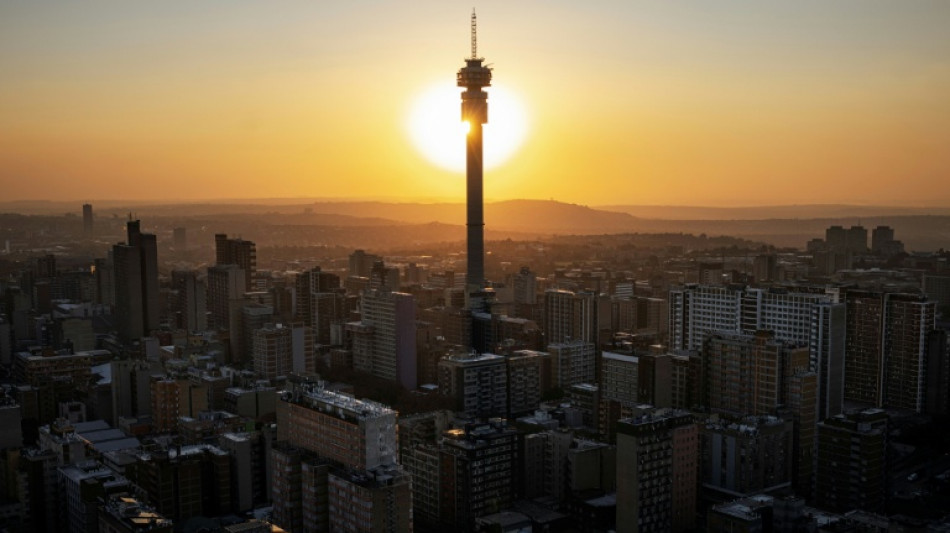
CMSD
-0.1500


South African President Cyril Ramaphosa unveiled Wednesday a plan to revive South Africa's flagging local governments, weeks after publicly criticising the state of the financial capital Johannesburg as it prepares to host the G20 summit in November.
Africa's most industrialised economy is divided into more than 250 municipalities, where basic services such as water and waste collection have deteriorated after years of neglect, graft and political infighting.
The reform is part of the second phase of a government programme called Operation Vulindlela -- "clear the path" in Zulu -- launched in 2020 to modernise key network industries including electricity, water and transport.
"The days of standing by and watching while taps in our townships or factories run dry or raw sewage runs into our rivers are over," Ramaphosa said.
The new plan proposes to improve the provision of basic services such as water and electricity through professional utilities, including from the private sector.
The providers "should have the right technical skills, strong regulation and oversight, and should be rid of any form of corruption and have full control of their billing and revenue functions," Ramaphosa said.
The president took aim at Johannesburg's decline in March, highlighting the urgent need for intervention so that it "can improve immensely".
Nicknamed the "City of Gold" for its roots in the gold mining industry, Johannesburg is South Africa's economic hub and hosts the wealthiest square mile on the continent.
Yet parts of the sprawling metropolis of nearly five million are in a state of disrepair, from crumbling infrastructure to unreliable service delivery, blamed on mismanagement and poor governance.
- Results 'over time' -
The impact of plans for improvements will only be felt "over time rather than in the immediate term", warned Treasury director general Duncan Pieterse.
"We believe South Africa's growth problem is structural, not cyclical," he told reporters on Wednesday.
"An important feature of the Operation Vulindlela reform agenda is that it targets the underlying structural constraints to growth and therefore aims to raise our potential growth rate as a country," he said.
As part of the reforms, the government will move forward with plans to unbundle state power utility Eskom into separate generation, transmission and distribution entities.
South Africa's frequent power cuts are often caused by breakdowns at Eskom's ageing coal-fired plants.
The first phase of Operation Vulindlela focused on the energy, logistics and telecoms sectors, lowering data costs and introducing electronic visas for 34 countries including China, Kenya and India, the Treasury said.
Despite its industrial base, South Africa's economy remains weighed down by an unemployment rate of around 32 percent, one of the highest in the world.
Growth reached just 0.6 percent in 2024, with the IMF projecting a modest 1.0 percent for this year.
"Our economy needs to grow much faster to create the jobs that we need and to achieve prosperity for all," Ramaphosa said.
A.Sun--ThChM